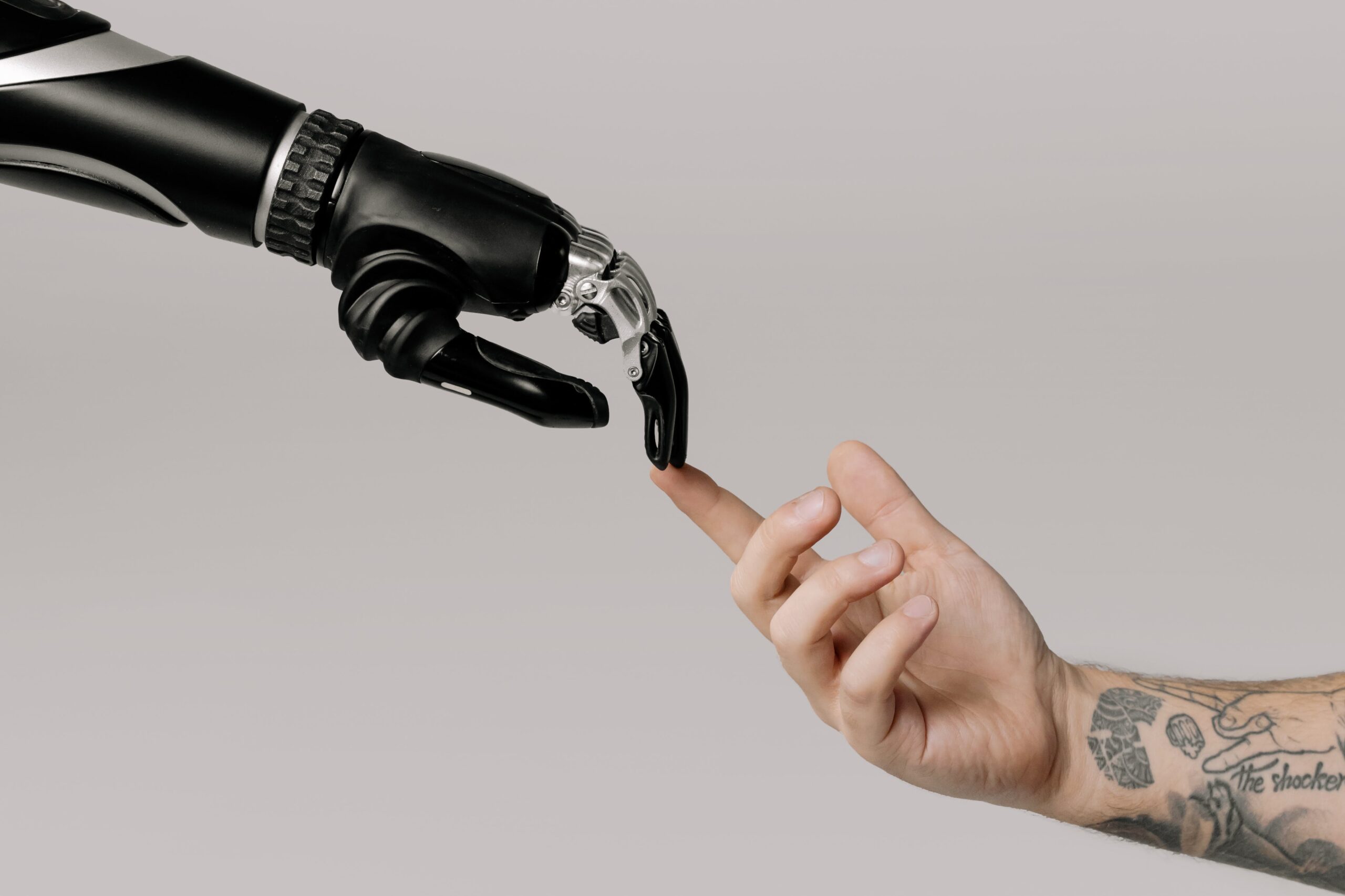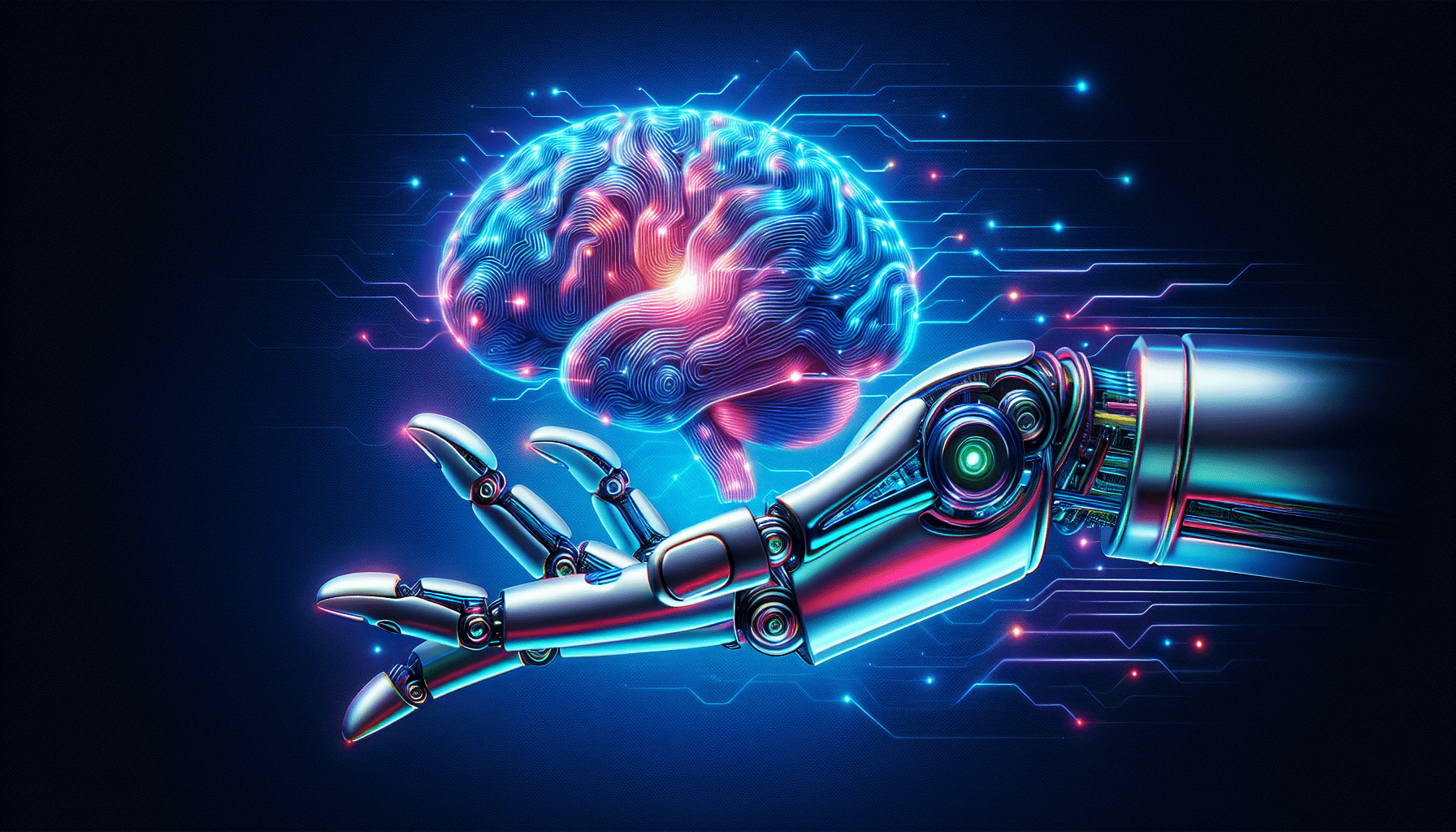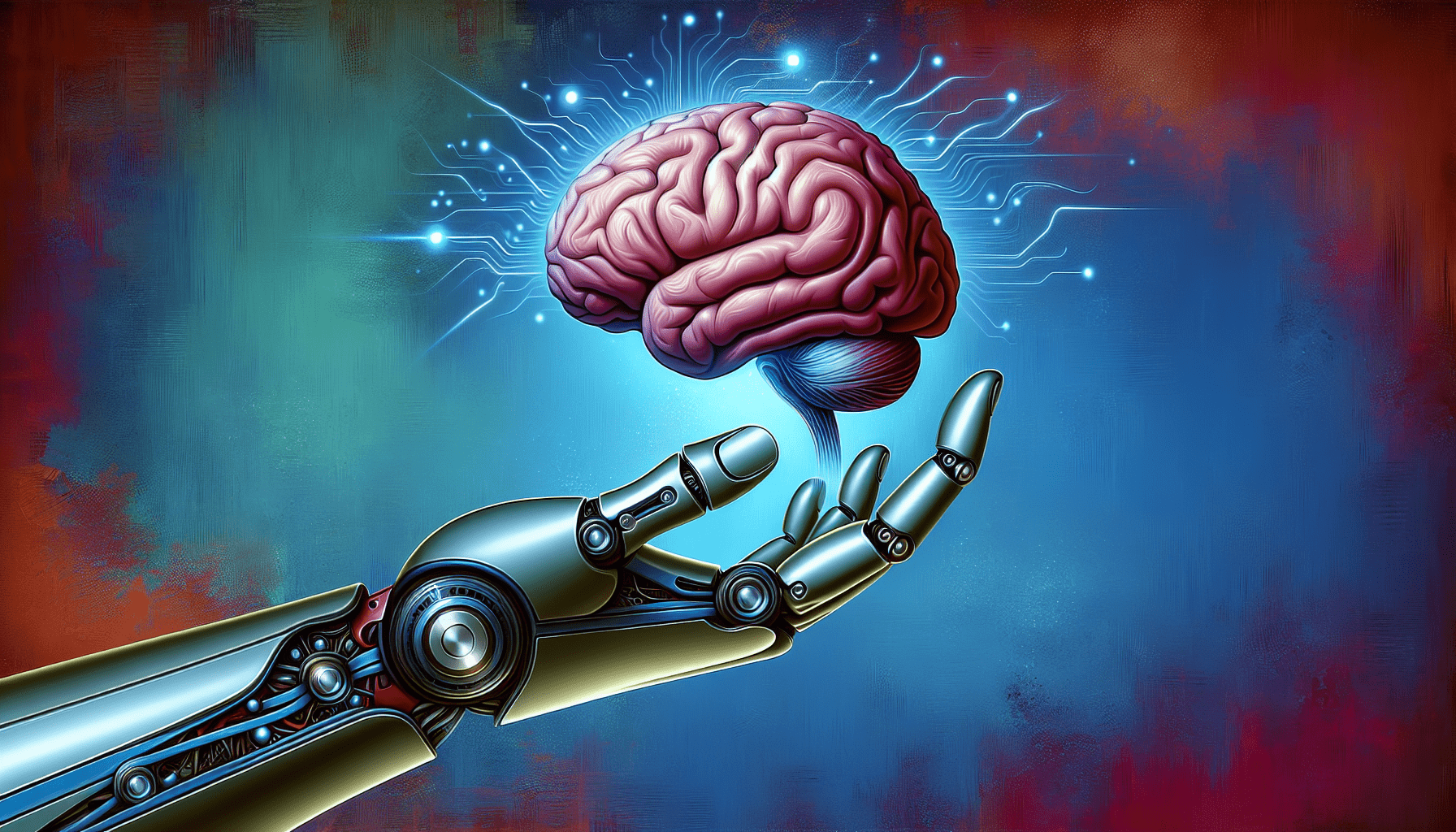So you’re a total beginner in the world of Artificial Intelligence? Don’t worry, we’ve got you covered! In this crash course, we’ll take you on a journey to demystify the complex world of AI and explain it in a way that even a newbie can understand. Whether you’ve heard about AI in the news or have seen it in movies, this beginner’s guide is here to equip you with the essential knowledge you need to grasp the basics of Artificial Intelligence. Let’s embark on this adventure together and become acquainted with the fascinating realm of AI!

What is Artificial Intelligence?
Artificial Intelligence (AI) refers to the ability of machines to perform tasks that would typically require human intelligence. It involves the development of computer systems and programs that can process large amounts of data, learn from it, and make decisions or take actions in a way that simulates human intelligence. AI encompasses various fields such as machine learning, natural language processing, computer vision, and robotics.
Definition of Artificial Intelligence
Artificial Intelligence can be defined as the simulation of human intelligence in machines that are programmed to think and learn like humans. It is the science and engineering of creating intelligent machines that can perceive, reason, and act in complex and unpredictable environments.
Goals and Objectives of Artificial Intelligence
The goals of Artificial Intelligence are centered around creating machines that can perform tasks more efficiently and accurately than humans, and enhance human capabilities in various domains. Some of the major objectives of AI include:
- Developing machines that can understand and respond to natural language, enabling effective communication between humans and machines.
- Creating systems that can perceive and interpret the world through computer vision, allowing machines to analyze images and videos.
- Designing algorithms and models that can learn and improve from experience, thus enabling machines to adapt and make autonomous decisions.
- Building intelligent robots that can perform tasks in real-world environments, such as autonomous driving or surgical procedures.
History and Evolution of Artificial Intelligence
Origins of Artificial Intelligence
The concept of Artificial Intelligence dates back to ancient times, where Greek myths and folklore spoke of mechanical men and automated objects. However, the foundation for modern AI was laid during the mid-20th century when computer scientists began exploring the possibility of creating intelligent machines.
Milestones in the Development of Artificial Intelligence
The history of AI is marked by several significant milestones:
- In 1956, the Dartmouth Conference was held, which is widely considered the birth of AI as a field of study. Researchers gathered to explore the possibilities of creating machines that could exhibit intelligent behavior.
- In the 1960s, the development of expert systems became prominent, where computer programs were designed to mimic the decision-making abilities of human experts in specific domains.
- In the 1980s, the field of machine learning gained traction, with the introduction of algorithms that allowed computers to learn from data and improve their performance over time.
- In the 1990s, advancements in natural language processing and computer vision opened up new avenues for AI research, enabling machines to understand and interpret human language and visual information.
- In recent years, breakthroughs in deep learning, a subset of machine learning, have revolutionized AI by enabling computers to process and analyze complex data more efficiently, leading to significant advancements in areas such as image recognition and natural language understanding.
Types of Artificial Intelligence
Narrow AI vs. General AI
Artificial Intelligence can be broadly classified into two categories: Narrow AI and General AI.
- Narrow AI, also known as weak AI, refers to AI systems that are designed to perform specific tasks or solve particular problems. These systems excel in a focused domain, such as playing chess or recommending movies, but lack the ability to generalize their knowledge to other domains.
- General AI, on the other hand, refers to AI systems that possess the ability to understand, learn, and apply intelligence across a wide range of tasks and domains. General AI aims to replicate human-level intelligence and is capable of understanding, reasoning, and learning in the same way humans do. However, achieving true General AI is still a distant goal.
Reactive Machines
Reactive machines are the simplest form of AI systems that do not have the ability to store past experiences or learn from them. They operate based on a set of predefined rules and cannot consider context or make predictions. These machines can only respond to the current situation and do not have memory or knowledge of the past.
Limited Memory AI
Limited Memory AI systems go a step further by incorporating memory and the ability to learn from past experiences. They can store and retrieve information and use that knowledge to make better decisions in subsequent tasks. These systems are commonly used in applications such as self-driving cars, where past driving experiences are essential for making informed decisions.
Theory of Mind AI
Theory of Mind AI refers to the ability of machines to understand and model the thoughts, intentions, and emotions of humans. This level of AI requires an understanding of human psychology and the ability to attribute mental states to oneself and others. Although it is still an area of active research, the development of Theory of Mind AI could revolutionize human-machine interactions.
Self-aware AI
Self-aware AI is the most advanced level of AI, where machines possess consciousness and self-awareness similar to humans. This level of AI remains purely speculative and is a topic of philosophical debate. Self-aware AI would have a deep understanding of its own existence, emotions, and consciousness.
Applications of Artificial Intelligence
Machine Learning
Machine Learning is a branch of AI that focuses on creating algorithms and models that can learn and improve from experience, without being explicitly programmed. It enables computers to automatically identify patterns in data and make predictions or decisions based on those patterns. Machine Learning has found extensive applications in various domains, including finance, healthcare, marketing, and cybersecurity.
Natural Language Processing
Natural Language Processing (NLP) is the field of AI that deals with the interaction between computers and human language. It involves tasks such as speech recognition, language translation, sentiment analysis, and chatbots. NLP enables machines to understand and generate human language, making it crucial for applications such as virtual assistants and language translation services.
Computer Vision
Computer Vision is the field of AI that enables machines to perceive and interpret visual information from images or videos. It involves tasks such as object detection, image recognition, and video analysis. Computer Vision has numerous applications, ranging from self-driving cars and surveillance systems to medical imaging and augmented reality.
Robotics
Robotics combines the fields of AI, mechanical engineering, and electronics to create intelligent machines that can interact with the physical world. AI-powered robots can perform tasks in various industries, including manufacturing, healthcare, agriculture, and exploration. They can be designed for tasks such as pick-and-place operations, surgical procedures, or even assistive robots for the elderly or people with disabilities.
Virtual Assistants
Virtual Assistants are AI-powered software programs that can perform tasks or provide information by interacting with users through natural language. They can schedule appointments, answer questions, play music, and even control smart home devices. Popular virtual assistants include Apple’s Siri, Amazon’s Alexa, Google Assistant, and Microsoft’s Cortana.

Ethical Considerations in Artificial Intelligence
Bias and Fairness
Bias is a significant concern in AI systems as they can reflect and amplify existing biases present in the data used to train them. Bias in AI can lead to discriminatory outcomes in areas like hiring, lending, and criminal justice. To ensure fairness and avoid discrimination, it is crucial to carefully select data, assess algorithms for biases, and incorporate methods for fairness and transparency in AI systems.
Data Privacy and Security
AI systems rely heavily on data, often requiring access to large amounts of personal and sensitive information. Ensuring data privacy and security is essential to protect individuals’ rights and prevent misuse of information. Organizations must implement robust security measures, data anonymization techniques, and adhere to privacy regulations to maintain the trust of individuals and safeguard their data.
Unemployment and Job Displacement
The increasing automation and integration of AI into various industries raise concerns about potential job losses and unemployment. While AI can automate repetitive tasks and improve efficiency, it can also lead to the displacement of certain jobs. Addressing this challenge requires a concerted effort to reskill and upskill the workforce, and focus on creating new job opportunities that leverage AI technology.
Autonomous Weapons
The development of Autonomous Weapons, also known as “killer robots,” poses ethical concerns regarding their deployment and control. The use of AI in military applications raises questions about accountability, transparency, and the potential for unintended consequences. International efforts are underway to establish guidelines and regulations to ensure the responsible and ethical use of AI in military contexts.
Benefits and Advantages of Artificial Intelligence
Automation and Efficiency
AI enables automation of repetitive and mundane tasks, freeing up human resources to focus on more complex and creative work. Through automation, AI systems can perform tasks with higher accuracy, speed, and consistency, leading to increased efficiency and productivity.
Improved Decision-Making
AI systems can analyze vast amounts of data and extract valuable insights that aid in decision-making. By providing data-driven recommendations and predictions, AI empowers individuals and organizations to make informed choices that can lead to better outcomes.
Enhanced Healthcare and Medicine
AI has made significant contributions to the field of healthcare and medicine. From diagnosing diseases and predicting patient outcomes to assisting in surgical procedures and drug development, AI has the potential to revolutionize healthcare delivery, improve patient care, and save lives.
Greater Accessibility
AI has the power to bridge the accessibility gap by enabling individuals with disabilities to access and interact with technology more effectively. Through applications such as speech recognition, gesture-based interfaces, and personalized recommendations, AI can enhance the inclusivity and accessibility of various technologies.

Challenges and Limitations of Artificial Intelligence
Lack of Common Sense
Despite significant advancements in AI, machines still lack the common sense and intuitive understanding that humans possess. Machines struggle to grasp context, make sense of ambiguous or contradictory information, and exhibit reasoning abilities similar to humans.
Data Limitations
AI systems heavily rely on large amounts of high-quality data to learn and make accurate predictions. The availability, quality, and representativeness of data can be limiting factors for AI applications. In domains where labeled or curated data is scarce, the performance of AI models may be impacted.
Interpretability and Transparency
AI algorithms can be complex and opaque, making it challenging to understand and interpret their decision-making process. The lack of transparency raises concerns about potential biases, discrimination, and inaccuracies in AI systems. Ensuring interpretability and transparency in AI algorithms is crucial to maintain trust, accountability, and ethical standards.
Ethical Dilemmas
AI raises various ethical dilemmas, such as privacy concerns, algorithmic accountability, and the potential for unintended consequences. Balancing the benefits and risks of AI, addressing societal implications, and ensuring human values are preserved pose challenges that require careful consideration and ethical frameworks.
Future Trends and Developments in Artificial Intelligence
AI in Education
AI has the potential to transform education by personalizing learning experiences, automating administrative tasks, and adapting teaching methods to individual student needs. Through intelligent tutoring systems, adaptive assessments, and virtual learning environments, AI can revolutionize education and make learning more engaging and effective.
AI in Transportation
Autonomous vehicles powered by AI are poised to revolutionize transportation. Self-driving cars can reduce accidents, improve traffic flow, and enable more efficient and sustainable transportation systems. AI can also optimize logistics and supply chain management, leading to more efficient delivery services and reducing carbon footprint.
AI in Entertainment
AI is increasingly being used in the entertainment industry to create interactive and immersive experiences. From AI-generated music and artwork to virtual reality gaming and personalized content recommendation, AI is enhancing entertainment experiences and pushing the boundaries of creativity.
AI in Medicine
AI has immense potential in revolutionizing healthcare and medicine. AI-powered diagnostic systems can improve disease detection and prediction, while robotic surgery systems can enhance surgical precision and outcomes. AI can also contribute to drug discovery and personalized medicine, leading to more effective treatments and improved patient care.

Getting Started with Artificial Intelligence
Learn Programming and Data Analytics
To get started with AI, it is essential to have a strong foundation in programming and data analytics. Learning programming languages such as Python or R and gaining proficiency in data manipulation, analysis, and visualization are important skills for working with AI algorithms and models.
Explore Machine Learning Algorithms
Machine Learning is a key component of AI, and understanding different algorithms is vital. Explore supervised learning algorithms like linear regression and decision trees, unsupervised learning algorithms like clustering and dimensionality reduction, and reinforcement learning algorithms. Gain hands-on experience by working on projects that involve implementing and experimenting with different algorithms.
Join Online Communities and Forums
Joining online communities and forums related to AI can provide valuable resources, guidance, and opportunities to collaborate with like-minded individuals. Engage in discussions, ask questions, and share your knowledge to enhance your understanding and network with AI enthusiasts and professionals.
Participate in AI Competitions and Hackathons
Participating in AI competitions and hackathons can provide practical exposure and help reinforce your AI skills. Platforms like Kaggle host competitions where participants can solve real-world problems using AI techniques. Collaborating with others and challenging yourself in these settings can accelerate your learning and showcase your abilities.
Conclusion
In conclusion, Artificial Intelligence is a rapidly advancing field that has the potential to transform various aspects of our lives. From increasing automation and efficiency to enabling breakthroughs in healthcare and improving decision-making, AI offers numerous benefits and opportunities. However, it also poses ethical considerations, challenges, and limitations that require careful navigation. By understanding the basics of AI, exploring its applications, and actively engaging in the AI community, you can be part of this exciting and evolving field with immense potential for the future. Embrace the opportunities and challenges ahead and embark on an AI journey that can shape the world we live in.







Leave a Reply